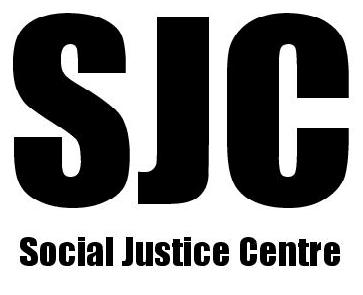By Jeff Shantz
On Saturday, November 24, 2018, Anti-Police Power Surrey (APPS) held a rally against the dominance of police in our communities in Surrey and the fear politics being pushed by politicians, businesses, and police to ratchet up police budgets and the further expansion of policing in our communities, even as crime rates drop. It was also a moment to call for more support for community resources and funding of socially necessary services that are, in fact, primary reasons that crime rates drop—not police as some assume.
Almost 60 people marched from City Hall to the RCMP office in Whalley, a center of police violence against poor and homeless people. The rally heard from numerous speakers who told of experiences of police violence and the negative impacts of policing, especially on oppressed and marginalized people and communities. One young man, Gurpreet, attending his first protest, described the social forces that led him into gang activity and to being criminalized and of the need for community solutions not more policing.
The theme of the day was “Community Not Cops.” This expressed APPS’ emphasis on social resources and spending to address causes of social harms and conflict and to care and support for communities in ways that improve social conditions and relations. Police do not and cannot do this. Instead, they increase social tensions and violence (fear and alienation) while targeting specific groups and individuals for punishment (often on the basis of class, poverty, and racism).
The main call of the rally was “Divest from Police, Invest in People.” This spoke to the disproportionate amount of public resources and funding that go to police budgets rather than necessary social services (community centers, child care, elder care, harm reduction, etc.). In Surrey, at least 20 percent of the City budget goes solely to formal policing (in the RCMP). More goes to other policing functions (bylaw, etc.).
Instead APPS suggests that funding would be better spent on community initiatives that reduce social harms and build the connections that protect communities and provide real security and safety.
Community Not Cops
Police only respond reactively to activities that are defined legally as crimes (whether the laws are just or not) and have much discretion in how they pursue their work, who they impact and how. Police do not protect communities, as some would believe, by stopping the criminal act as it occurs.
In response to the APPS rally the Surrey Now-Leader asked, “Who will protect you when the burglar comes through your window?” But that is not what police do. If the burglar is through your window it is already too late. Calling the cops after the fact will not keep you safe. We need to reduce socially harmful activities before they occur. And we need to address why certain acts occur in the first place.
Only building community solidarity and support will do that. Only resources for community care will do that.
Yet proponents of policing want to spend even more public resources and funds on reactive punishment-based approaches. At the same time they expect already overworked, under-resourced, under-supported, under-serviced communities to do essential community safety and care work with little or no support. That is wrongheaded and ideological. It is classic neoliberal practice—defunding communities to justify massive spending on forces of state repression.
Much criminological research shows that strengthening community cohesion and solidarity, through expanded and shared resources and services reduce social conflict and harmful activities. This is where we need to go. This is a point that Anti-Police Power Surrey is trying to bring to public discussion, a discussion so far dominated by authoritarian and repressive approaches.
On Fear and Politics
To point out that politicians, businesses, and police use fear politics and moral panics to promote increased police spending, activities, equipment, and officers is not to say that there are not reasons for concern in our communities. Rather, it is to recognize that police will not reduce social harm or remove the sources of social harm in our societies. Structures of poverty, exploitation, racism, oppression are reinforced by and maintained by policing practices (that largely protect systems of inequality and property over and against human need).
Rather it is too show the disconnect between reality and perception and to ask why politicians are using misrepresentations rather that reality as the basis for decision-making. If crime rates are dropping, as they are in Surrey, why the loud and persistent calls for increased policing? Why the claims by proponents of increased policing that crime in Surrey is growing, even spiraling out of control?
Anti-Police Power Surrey has some answers. And they are working toward community-based alternatives. The Community Not Cops rally initiated some of that conversation
News coverage: https://www.surreynowleader.com/news/people-march-in-north-surrey-to-protest-policing-costs/















